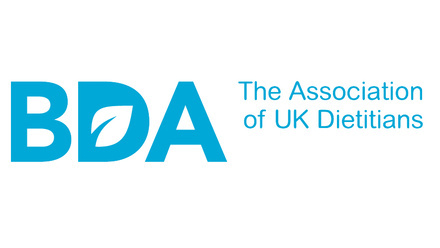We welcome the launch of the new Obesity Strategy, which represents an important milestone in recognition of obesity as a serious health concern. However, there are serious gaps in the Strategy which concern us.
- We agree that helping people to achieve and maintain a healthy weight is one of the most important things we can do to improve our nation’s health, and indeed this is something we have been advocating for over many years.
- We welcome the recognition that excess body weight increases the risk of several serious chronic diseases, and is associated with worse outcomes in those who become infected with COVID-19. Obesity is not a new health issue, but one which previous Governments have attempted to address and indeed we have commented on several previous strategies.
- Obesity does not just ‘sow the seeds of adult disease and health inequalities in early childhood’; health and social inequalities themselves are fundamental to the development and maintenance of obesity. Unless these fundamental inequalities are seriously addressed, any obesity strategy is likely to simply provide sticking plaster remedies.
- Obesity has been ‘an immediate concern’ for our health and care services for decades, but there has been little sustained long-term action to address the fundamental drivers which cause and maintain obesity.
- An intention to ‘focus more on public health and prevention’ is welcome, but the focus must be backed up by ring-fenced, additional, long-term public health funding. In addition, a focus on public health will not address the need for adequate service provision, equality of access and funding inequalities which result in unequal treatment provision across England.
- We agree that obesity is a major modifiable risk factor, and one of the few for COVID-19, but we would urge recognition of the complexity of obesity by equally considering the genetic, psychological, environmental and social drivers of the disease which increase risk in many people, making individual efforts to achieve/maintain a healthy weight very difficult. In view of this compassionate and non-stigmatising approaches are needed.
- While we recognise that there are health and social costs of obesity and excess weight, the emphasis on losing weight as a patriotic duty is unfair and risks further stigmatising those who struggle with their weight, despite sustained effort. Realistically, individual efforts to achieve and maintain a healthy weight in a system which fails to recognise the impact of emotional distress and food insecurity on eating behaviour in combination with an environment which promotes over-consumption and a sedentary lifestyle are likely to be overpowered, and indeed research shows this to be the case.
- Even modest weight loss will benefit individual health and wellbeing, the actual benefit depending on the initial body weight and the amount of weight lost. It is therefore important that for people with severe and complex obesity effective strategies are offered, enabling them to lose significant weight and sustain this.
- It is unclear how the PHE’s new “Better Health” campaign will differ from previous (and indeed current) health campaigns. The NHS BMI calculator and the NHS 12-week programme are not new, and evidence of the efficacy of campaigns is limited apart from raising awareness of the issue. However, it is unclear that it is lack of awareness that is the problem, rather than the practical difficulties of managing to be adequately active and nourished, in an affordable way, on limited time and resource. It is also unclear whether the groups who have highest prevalence of obesity are also the groups who are most likely to access such resources.
- Furthermore, it is important for the Government to appreciate that as the delivery of the 12-week programme is online and app based, it will not be equally accessible to those in digital poverty. The likely consequence is people most in need and at higher risk of obesity and ill health e.g. BAME communities, and those in lower socio-economic groups, will be further disadvantaged.
- Obesity is a chronic, relapsing disease that requires lifelong support and treatment in order to achieve successful weight loss and health benefits. We are therefore concerned that current treatment strategies to help those with obesity are only being provided in the short term (12-weeks). Therefore, we encourage the government to consider how it plans to offer long-term continued support following the conclusions of the programme to enable weight-loss maintenance.
- We welcome a commitment to legislate for out-of-home food businesses with >250 employees to add calorie labels to the foods they sell. We welcome the recognition of the important role of the environment in promoting unhealthy diets and lower activity levels. However, making the healthy option easier is not just about providing information and those most likely to read it may be those already interested in addressing their diet and/or weight (although we agree that information should be provided and should be mandatory).
- We are concerned that there is no requirement for companies with <250 employees to supply calorie information. In more deprived areas there is a documented higher concentration of fast food outlets, many of which are likely to be small businesses and thus exempt from the promised mandatory action. This could potentially increase health inequalities.
- We therefore urge mandatory action for the smaller businesses too, many of which are likely to cluster in the deprived areas where prevalence of obesity is also highest. In our view legislation needs to be extended to include any out-of-home food business but with additional support – for example, central calorie calculation facilities with support from registered dietitians and accredited nutritionists with relevant experience; since small businesses cannot be expected to manage this alone without support. We do not think that encouraging them to voluntarily supply information is realistic, and the Responsibility Deal showed the limitations of voluntary action.
- It is important that the government appreciates that focussing only on calorie content of food and alcohol may have an unintended negative consequence on people living and/or recovering from eating disorders. Therefore, further research is essential to understand this possible impact.
- We agree that calorie information on alcohol may well be helpful but are unclear why a consultation on this is needed. If it is a good idea why not simply act?
- We are delighted that action is promised on promotions of HFSS, something we have advocated for a long time. However, it is frustrating that there is no detail on when this will happen; the commitment was previously made, so this is not new. What would be new would be action.
- We are delighted that a ban on advertising on HFSS before 9pm will be put into place, but again it is frustrating that no date has been set for action. This is not a new commitment, but a reiteration of a previous one.
- We welcome the intention to extend a ban to online advertising and would like detail as soon as possible on how this may work on practice. Given that the online world is global, it is unclear how this commitment may be met.
- We are concerned that many of these aspirations may fall victim to the predicted recession, particularly given the need to make trade deals post-Brexit. We urge the government to prioritise healthy weight and provide the funding, resources, commitment and leadership needed to achieve this.
- We welcome an intention to ‘expand weight management services in the NHS’ but again, we would welcome detail on this. When and how will this expansion occur? With what funding? It is also unclear which services will be expanded.
- The commitment to expand the Diabetes Prevention Programme is not new. However, we welcome the pragmatic proposal to focus on the COVID-19 affected areas, although we also note that these are likely to also be areas of high deprivation and diversity, and those links with ill-health have been known about for decades. Digital poverty (as mentioned in point 10), may also be higher in these populations.
- We are interested in the proposal for ‘healthy weight coaches’ in Primary Care Networks. However, we advocate caution; weight management is a specialist area requiring current accurate knowledge, communication skills and appropriate non-stigmatising venues and resources. Training provided needs to be extensive and ongoing, and supervision and oversight of healthy weight coaches will be needed. It is not clear who these coaches will be, but what they must not be is care on the cheap. That would be a huge disservice both to those in need of help and support, but also to healthcare professionals who have invested in their own skills and competencies over many years. It is important that capacity is provided to these weight coaches to ensure they can deliver effective interventions.
- With dietitians being the only profession licenced by law to give dietary advice we would urge greater funding into access to dietitians within both primary and secondary care to deliver specialist advice.
- We are interested in the proposal to ensure that it is ‘easier for those struggling with their weight to be referred to specialist support’. What is meant by ‘specialist services’? Although NICE CG189 Obesity recommends access to specialist weight management services (tier 3) and bariatric and metabolic surgery services (tier 4), there is already a well-documented lack of suitable specialist weight management services at tiers 3 and 4 across the country, resulting in those with severe and complex obesity, who are eligible for such services not being able to access them in their local area (the so-called ‘postcode lottery’). We are concerned with the lack of detail on how this will be delivered and the proposed timeline for easier referrals. The recent statement by the British Obesity and Metabolic Surgery Society (BOMSS) provides further detail3.
- We agree with the principle of taking the learnings from one area of public health and applying them to other areas of health. However, we also recognise that smoking cessation is a relatively simple behaviour, by comparison with eating and activity behaviours which are complex behaviours.
- We would also note the major changes to smoking behaviours occurred as a result of legislation backed up with accessible education and support services, and we would urge the government to apply similar approaches to weight management. This strategy largely emphasises individual behaviours, as though healthy weight is a choice. While we agree that we can all take actions to benefit our own health and wellbeing, obesity is not a choice, and it is far easier for those with resources to take action than those without.
- We welcome the inclusion of obesity within the QOF, and indeed have responded to that consultation. We are glad that the proposal does not simply require weighing patients (which we think is a basic aspect of patient care, given the indisputable links between excess weight and risks of ill-health), but referring patients to suitable weight management services alongside psychological, social and financial support. However, we have advocated follow-up on such referrals by healthcare professionals as well as recording those who do not wish to have a referral made, or who are already taking action. We also noted that an increase in referrals means that more services will need to be made available.
- We do not think that an intention by government to ‘encourage provision’ of weight management services is either fair or realistic, given the funding crisis in local authorities. Indeed, it could be viewed as an abdication of responsibility by the cynical. Funding, provided on a long-term basis, leadership and long-term support to ensure that local authorities are able to provide such services is needed. This is particularly true for those local authorities with the highest prevalence of individuals living with overweight and obesity, since they are also likely to be dealing with a greater prevalence of other social and healthcare issues. They will also have been more severely affected by the COVID-19 pandemic.
- The rhetoric to ‘make it easier’ for people to achieve a healthy weight is not new. What would be new is sustained action to actually make it easier, and we very much hope that this document will be the start of such action.
- We would urge action on marketing to children before the end of 2022. Why wait? The commitment has been made; action is needed.
- We welcome the fact that the Government is ‘committed to further action if results are not seen’ in the reduction and reformulation programmes on sugar, calories and salt. However, this commitment again is not a new one, and there is no clarity about what such action might comprise. It is also not clear that any action to date has been taken against those who have not engaged with these voluntary programmes, and the difference in achievement in the voluntary programme compared with the mandatory SDIL starkly highlights the limitations of voluntary action.
- We would welcome honest marketing and labelling of infant foods – the question we pose to the Government is when?
- The SDIL is acknowledged as successful, so much so that the proposal is to take it global. In that case we wonder why it is not being extended e.g. to sugary milky drinks and indeed to foods, not just drinks?
- We are disappointed that breastfeeding and maternal health have not been included in an obesity strategy, since both have long-term effects on the health and well-being of children, including their weight. Breastfeeding, a commitment to enforcing compliance with the Code and making Breastfeeding Friendly mandatory should be included, as should training of and resources for midwives and health visitors in evidence-based weight management interventions.
- Consideration of mental health and psychological factors is absent from the strategy.
- Despite considerable media coverage of a new Government focus on cycling and walking, physical activity has not been included in the actual strategy. It should be clear what the entire strategy comprises.
- However, specifically with regard to the media coverage, we welcome action to encourage physical activity and walking is well-recognised as accessible, achievable and effective in increasing daily activity levels for most.
- We are interested in the focus on cycling, apparently due to a rise in cycling during the pandemic. We would like to see evidence that this increase in cycling occurred in those groups most at-risk of gaining excess weight. There are many reasons to promote cycling, including environmental benefits, and to do so, investing in equipment and appropriate infrastructure is required and welcome. However, with regard to obesity specifically, it is unclear that cycling is most appropriate or accessible to those already living with obesity, or the groups most at-risk.
- The banning of energy drinks to young people <16 years was previously consulted on, but has not been included.
- Apart from a brief mention at the end of the document, the SDIL has been excluded.
- We are very disappointed that there is no commitment to subsidising healthy foods, which would make them affordable for the most at-risk and vulnerable groups.
- Given the current rise in use of Food Banks by those in need of emergency food, it is our view that an obesity strategy should include action to ensure that food provided by Food Banks meets basic nutritional standards. Ideally there would be no need for them, and the action needed to address social and health inequalities is also needed to ensure that all individuals have the means to afford basic, nutritious foods for themselves and their families.
- In 2019, Public Health England released the “Health Matters: Whole systems approach to obesity” which identified that a long-term, whole systems approach across the entire life course was needed to address the complex causes of obesity. Unfortunately, the current strategy appears not to address this approach and instead focuses predominantly on individual responsibility of people with obesity to make dietary and physical activity changes.
- Overall, we welcome the production of the strategy, but much of it represents commitments which were already made without specific detail on when they might be actioned. We do not want a strategy that is the equivalent of the emperor’s new clothes. Detail, leadership, long-term sustained adequate funding and committed action are needed. The fundamental inequalities which exist and which drive and maintain obesity nationally must be addressed. In addition, suitable support for those already struggling with excess weight, is needed, particularly those with severe and complex obesity.




